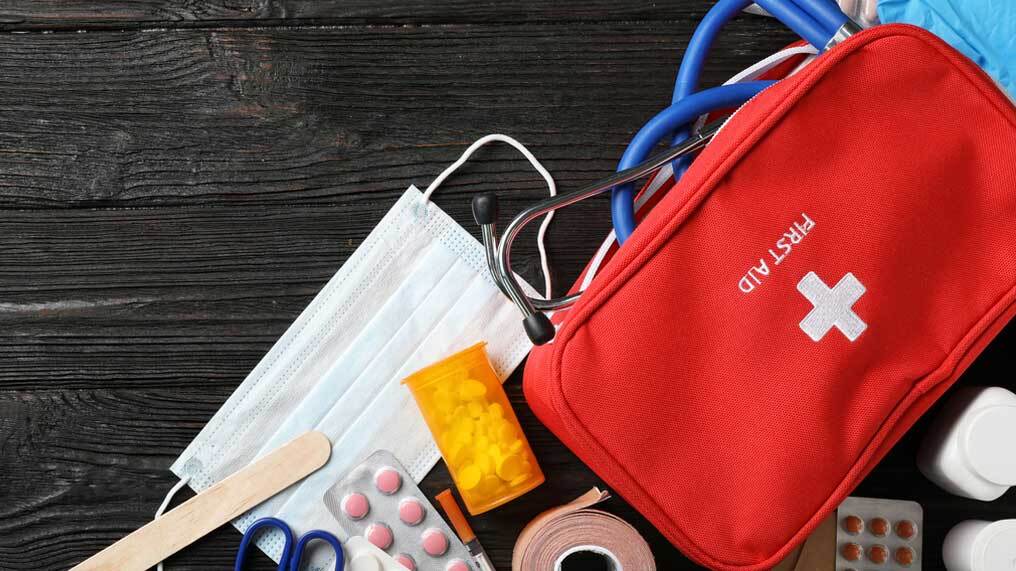Travelling is an exciting but occasionally hazardous activity. From travel sickness to sunburn, dodgy food to insect bites, being on holiday in a foreign place can conjure up a concoction of minor ailments. So it is important to pack a first aid kit – especially if you are travelling with children.
But what should you put in it? This depends largely on where you’re going. A three-week holiday in Kenya or Thailand, for example, could result in different problems than a weekend stay in Paris, so be sensible and only take things you think you’ll need.
Medication
Firstly, make sure you have an adequate supply of any medicines routinely taken by you or anyone else in your group. Don’t assume you will be able to get them wherever you go.
Make sure any prescription drugs are properly labelled and check before you travel that you can bring them into the country you plan to visit – don’t assume the same rules apply as in the UK.
Every good first aid kit should include a healthy supply of plasters, wound dressings and antiseptic creams for those minor scrapes and falls. This is particularly important if you are travelling with children who are likely to be clambering on everything in sight.
A place in the sun
Chances are you’ll be heading off somewhere hot, so don’t forget sun protection and after-sun. Children in particular must wear high-factor cream in hot conditions – you can get factors of 50+ in most high-street pharmacies.
It is not only the sun that can be problematic in hot climates, but also insects. Bites can not only be sore, but insects, particularly mosquitoes, can carry deadly diseases. Bring insect repellent and a mosquito net to sleep under at night. Burning incense coils can also deter mosquitoes if you’re eating outside in the evenings.
If you are heading into an area where malaria is prevalent, make sure you bring an adequate supply of anti-malaria tablets (and be sure you visit your GP well before your trip to get any relevant vaccinations). Tablets are not 100% effective, however, so continue to use repellent and other deterrents as well.
Also bring an adequate supply of antihistamines, which are not only effective against insect bites, but also allergies, itching and skin rashes.
Another common holiday ailment is jellyfish stings. Vinegar is a good treatment if you do get stung, so pack a few sachets such as the ones you find in fast food outlets in your first aid kit.
Many holiday illnesses result from drinking unclean water, or even water that’s treated differently to how it is in the UK. Pack water sterilisation tablets if you are unsure of the quality of water at your destination - simply drop them in the water before you drink it. You should be able to find bottled water readily available in all but the most isolated spots.
Be prepared
Despite taking precautions, you could still end up with a dodgy stomach at some point, so pack some tablets to ease diarrhoea, and some rehydration solution – essential if you’re travelling with children. As well as diarrhoea, unusual foods can cause constipation, so bring some laxatives as well.
The actual travel, too, can induce sickness, such as car, air or seasickness, depending on your mode of travel. There are lots different pills and devices available to combat travel sickness, so pack enough to see you through.
Last, but not least, bring a good supply of simple painkillers such as paracetamol or ibuprofen as they may be difficult to find while on holiday.
If the thought of running around trying to find all these things makes your head spin, you can buy ready-made travel first aid kits from pharmacies and travel shops. Be sure to check yours in advance and add a few things to them if they don’t fit your specific requirements.
Be prepared and your holiday should go without a hitch.




